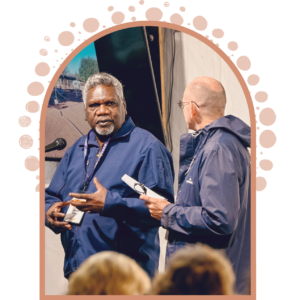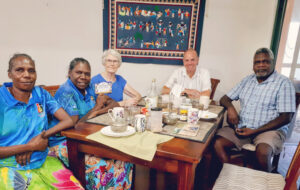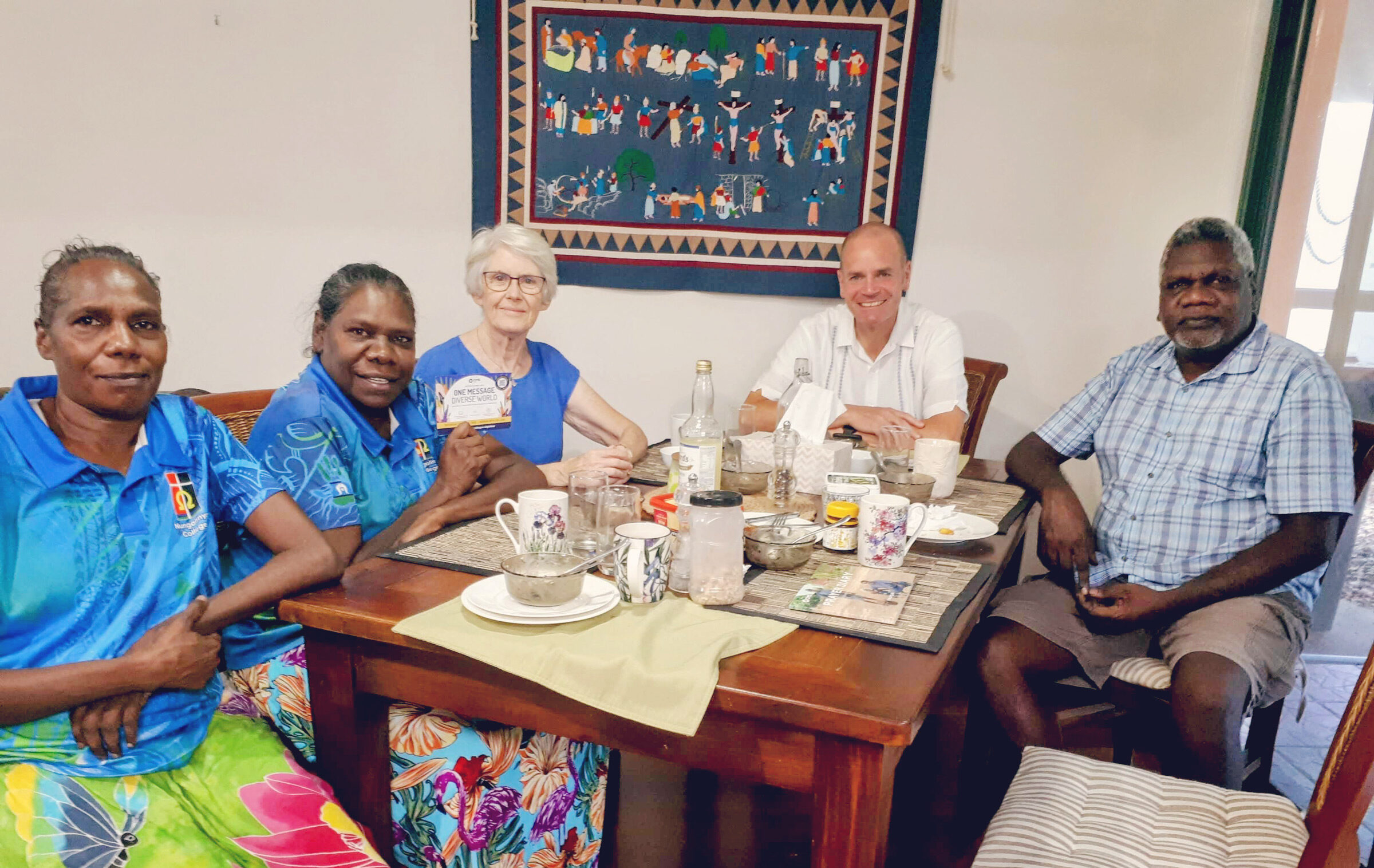Partnering with the Aboriginal church
Former CMS missionary and current Bishop of the Northern Territory, Greg Anderson, has served among Indigenous believers for over 30 years. He reflects on the partnership between CMS and the Aboriginal church in Northern Australia.
A constant and continuous presence
The Top End of the Northern Territory might have the blessing of being the place in the world where CMS Australia has provided the most constant and continuous presence for over a century.
We acknowledge that it was CMS’s mission that led to churches being planted which are now the six Aboriginal parishes of the Anglican Diocese of the Northern Territory. These are places where corporate worship is conducted in the languages of the people, where the translated portions of the Bible form the basis of Christian teaching, and where the leaders of the church are all local people who now serve in the places where they grew up.
I am so thankful to God for the foundation that he provided through CMS’s Northern Territory work, which began in 1908, for today’s churches.
In my 10 years as Bishop of the Northern Territory, 18 CMS missionaries have contributed in ministries of church and clergy support, theological and ministry education, translation and resource production, pastoral care and team building.
We are seeing the fruit of these contributions. Churches are gently growing, more context-suitable church worship and teaching resources are being developed, and more men are joining churches and stepping up to lead (where in some places there has been a dearth of male attenders). We are also seeing young adults in some communities becoming better engaged and studying at Nungalinya College (a Bible College equipping Indigenous believers to lead in churches and communities).

Greg Anderson with James Woods, a CMS Co-Mission Partner and teacher at Nungalinya College, during the 2025 CMS NSW & ACT Summer School.
Mutual benefit
Through the financial support of CMS, there are also paid Aboriginal co-teachers at Nungalinya from Anglican communities. Through other funding in the last few months, this number has grown so that every class now has an Aboriginal co-teacher. This helps both the College and the churches where teachers come from, as students see an example of a person like them to look up to, and churches benefit from the training and theological stimulation that the co-teachers receive while at Nungalinya.
Similarly, the ordination of four Arnhem Land men between 2020 and 2023 has provided an example of a cohort of mutually encouraging ministers across different parishes, who demonstrate the value of banding together rather than just going it alone. We are now in the process of establishing a cohort of women along the same pattern.
There is more that we hope for
At the same time, there is more that we hope for. The founding principal of Nungalinya College, Keith Cole, wrote many historical accounts of the work of CMS in Arnhem Land. In the 1970s, with the rise of Aboriginal self-determination and the end of ‘the mission era’, Cole expressed great optimism that the hand-over to the local church would result in the gospel flourishing across Arnhem Land.
It hasn’t really turned out exactly that way.
Remote communities exist in something of a ‘halfway house’ between modern Australia and the traditional world, and there is a long way for genuine self-determination to become a reality.
We are seeing leadership pass in some places from an older generation (in their 70s and 80s) to a younger one (in their 40s and 50s), but in others there are only the earliest signs of potential future leadership.
A major need is for evangelism, because there is still a degree of confusion—particularly among young people—about what God has done for the world, and what God calls us to do in response. That message needs to be presented in ways that will communicate clearly with local people, and show that ‘the gospel is not Western’.
We also have further to go in resource preparation and Bible translation, in supporting the strategic thinking and planning of local leaders, in training preachers in biblical theology, and in creating a stronger voice for Aboriginal people within the wider church.

From left to right: CMS Co-Mission Partners Mandy Mangurra and Marlene Andrews, CMS Missionary Rosemary Snibson, Peter Sholl, and James Woods.
Continuing a century-old collaboration
I believe the time has not yet come to close the century-old collaboration between CMS and the Aboriginal church in Northern Australia. Partnerships of this kind are not always easy or straightforward, but they demonstrate the truth that relationships of trust are built through time together, and in genuinely seeking above all God’s kingdom.
We greatly value the prayers of the CMS family for what we are trying to do, under God’s guidance, to work in his harvest field. We trust God’s provision for that harvest, which will result in his people having the abundant life that Jesus promises, sometimes in places where life seems to have so many challenges, and will result also in the praise of God’s glorious grace.

Reflections on North Australia
By Elizabeth Richards
In my role as Regional Mission Director for North Australia, I have visited and had glimpses into life in remote communities and enjoyed the welcome that I receive as a representative of CMS.
This has included joining fishing trips, attending church services and fellowship meetings and lots of conversations. In one such conversation, we shared about our family and background, and I spoke about my time as a missionary in Central Africa. Imagine my surprise when the ladies I was with started singing the chorus, “I have decided to follow Jesus” in Swahili!
From what I was told, the memory of this song dates to the 1960’s when a Ugandan evangelist,
Rev Festo Kivengere, visited Arnhem Land and spoke at evangelistic events. Another lovely connection in this story is that Festo himself was encouraged as a young man by CMS missionaries in Uganda. CMS missionaries have come and gone over many years, but are well remembered.
It is always exciting to see God at work putting people together for his purposes and using his people to bring about purposes we could not even imagine. It is a great joy and privilege for CMS to be a part of this—supporting people and churches by sending missionaries to live, work and participate in the community.
PRAY
![]()
Give thanks for the gospel partnership between CMS and Aboriginal churches. Pray that this ongoing partnership would be of mutual encouragement and blessing to people in North Australia—so that we may see a world that knows Jesus.












































































































